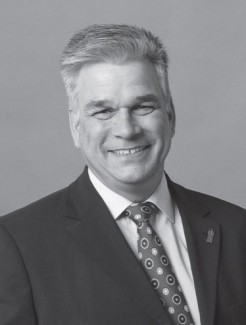Gastroenterology Services | Southern
Description
Southern DHB (SDHB) Gastroenterology is a districtwide service that specialises in disorders of the digestive tract (oesophagus, stomach, small intestine and colon) and related organs such as the liver.
Full diagnostic endoscopy services, including the National Bowel Screening Programme colonoscopies, are delivered in Dunedin Hospital by gastroenterologists and general surgeons, with an acute service available at all times. To maintain privacy and confidentiality for all patients and the safety of vulnerable patients, visitors or relatives are not routinely allowed into clinical areas. Exceptions will be considered on an individual basis.
Gastroenterology services at Southland Hospital consist of outpatient appointments and endoscopy sessions, including National Bowel Screening Programme colonoscopies, provided by a consultant gastroenterologist or the general surgical team. However, patients that require urgent gastroenterology intervention may be referred to specialists based in Dunedin Hospital. To maintain privacy and confidentiality for all patients and the safety of vulnerable patients, visitors or relatives are not routinely allowed into the procedural area. Access to the day surgery area is at the discretion of the nursing staff.
An endoscopy service is provided at Dunstan Hospital at a regular clinic for planned patients. Urgent interventions will be referred to Dunedin Hospital. To maintain privacy and confidentiality for all patients and the safety of vulnerable patients, visitors or relatives are not routinely allowed into the procedural area. Access to the patient preparation area is at the discretion of the nursing staff
Rural specialist clinics are provided at Queenstown, Balclutha and Oamaru.
Southern DHB participates in the training of new endoscopists from medical, surgical and nursing backgrounds, with training lists allocated to each trainee to develop safe and thorough technical skills and recognition of disease. Patients should be told if they are allocated to a training list when they attend for the procedure and have the option to opt out of having a trainee do their procedure. The consultant supervising the trainee will then complete the procedure and the report. Patients are also able to decline to have student doctors and nurses observe their procedure. Please let the nursing staff know on arrival if you don’t want students present during your admission.
What is Gastroenterology?
Gastroenterology is the branch of medicine that looks at diseases of the oesophagus (gullet), stomach, small and large intestines (bowel), liver, gallbladder and pancreas.
The oesophagus is the tube that joins your mouth with your stomach. It is a muscular tube that contracts to push the food through when you swallow.
The stomach is where food is broken down by acid and emptied into your intestines. The stomach has special cells lining its wall to protect it from these acids.
The intestines consist of the small intestine (duodenum, jejunum and ileum – different sections of small intestine) and the large intestine (colon). As food passes through the small intestine, nutrients are broken down and absorbed. When it passes into the colon, water is absorbed. The waste that is left is passed as faeces (poo).
The liver is the largest internal organ and is on your right side just under your ribs. It stores vitamins, sugar and iron, which are used by cells in the body for energy. It also clears the body of waste products and drugs, produces substances that are used to help blood clot and aid the immune system, and produces bile to aid digestion.
The pancreas is an elongated organ that lies in the back of the mid-abdomen. It is responsible for producing digestive juices and certain hormones, including insulin, the main hormone responsible for regulating blood sugar.
A gastroenterologist is a doctor specialising in the field of medicine which involves these closely related organs.
